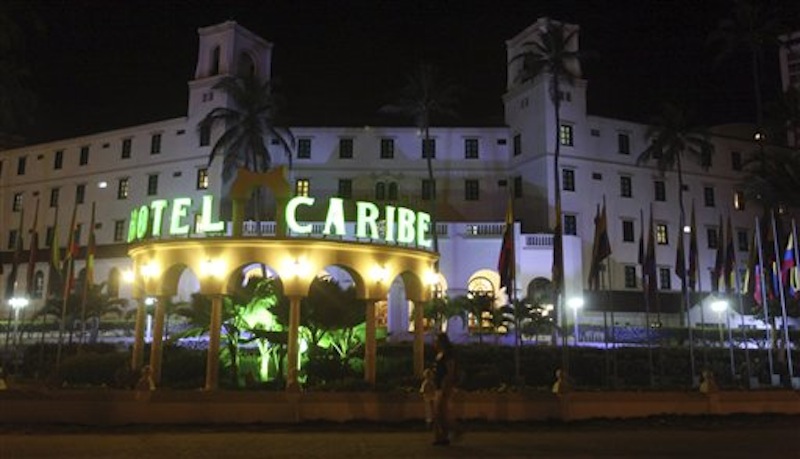WASHINGTON — Seven Army soldiers and two Marines have received administrative punishments, but are not facing criminal charges, for their part in the Secret Service prostitution scandal in Colombia this year, The Associated Press has learned.
U.S. officials said that one Air Force member has been reprimanded but cleared of any violations of the Military Code of Justice. And final decisions are pending on two Navy sailors, whose cases remain under legal review.
U.S. Southern Command, headed by Gen. Douglas Fraser, conducted the investigation into the military members’ involvement in the April incident, which brought shame to the elite presidential protection force and unearthed revelations of other episodes of misconduct within the Secret Service.
The military service members, all enlisted personnel, were assigned to support the Secret Service in preparations for a visit to the coastal resort of Cartagena by President Barack Obama. All of the military had behind-the-scenes roles and were not directly involved in presidential security.
The U.S. officials spoke about the investigation on condition of anonymity because the results have not been released. Military officials were expected to brief Congress members on the matter.
Of the nine who were given administrative punishments, three have asked for courts martial, which would provide them with a public trial to contest the decision, U.S. Southern Command said in a statement. Military members have the right to turn down administrative punishments and instead seek trial.
A dozen Secret Service officers, agents and supervisors were implicated in the Colombia scandal. Eight have been forced out of the agency, three were cleared of serious misconduct and at least two employees are fighting to get their jobs back.
The misconduct became public after a dispute over payment between a Secret Service agent and a prostitute at a Cartagena hotel on April 12. The Secret Service was in Cartagena for a Latin American summit before Obama’s arrival.
All the alleged activities took place before Obama arrived in Cartagena for meetings with 33 other regional leaders, but the scandal overshadowed his visit.
In the military, nonjudicial or administrative punishments can take a wide variety of forms, from docking service members’ pay or confining them to quarters to assigning them additional duties for a certain length of time. In some cases, administrative punishments can be career-ending, or delay or prevent promotions.
Written reprimands often are letters placed in service member’s files and would suggest a less serious offense. Initial reports suggested that some of the military members violated their curfew, but no other details were released.
Defense officials have said that Fraser was chosen to handle the investigation and hand out the punishments because the incident happened in his command area and that it would ensure that the discipline was equal across the services.
The military usually does not publicly disclose details of administrative punishments.
Send questions/comments to the editors.



Success. Please wait for the page to reload. If the page does not reload within 5 seconds, please refresh the page.
Enter your email and password to access comments.
Hi, to comment on stories you must . This profile is in addition to your subscription and website login.
Already have a commenting profile? .
Invalid username/password.
Please check your email to confirm and complete your registration.
Only subscribers are eligible to post comments. Please subscribe or login first for digital access. Here’s why.
Use the form below to reset your password. When you've submitted your account email, we will send an email with a reset code.